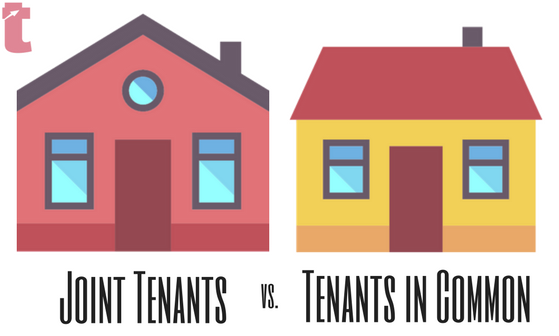|
A Will can serve many purposes. Two important reasons of having a will are determining custody of any children under 19 and property distribution.
Every family's dynamic is different. The fact is, not all families live in harmony. There are many instances where one would decide to provide little support to or disinherit a certain family member in his or her Will. In this situation, the Will can potentially be challenged by the deceased person’s spouse or children in a “will’s variation” lawsuit. Under the Wills, Estates, and Succession Act (WESA), the Court can, if it deems appropriate, "vary" the will and increase the amount the spouse or children entitled to, or change the custody of the children. There are two types of obligations the Court will consider: legal obligations and moral obligations. Legal obligations are obligations that are enforced by a court of law; and moral obligations are society’s reasonable expectations of what a judicious person would do in certain situations. For moral obligations, it is not necessarily legally bound to fulfill and just dependent on the social expectations. The spouse of the deceased can challenge the Will if the deceased person does not provide adequate support to the widow after death. It is the duty of the Court to determine if the will-maker has fulfilled his or her legal and moral obligations to the widow in the will, and if the Court determines the support provided is inadequate, then the Court will most likely accept the application to vary the will. In the case of children, a court will look to both the legal and moral obligation of the will-maker to support the children in question. If the child was a minor at the time of passing, legal obligations may resemble those of support obligations under family law. The will-maker has no legal obligation to their adult children. However, adult children can make a claim using the criteria that failure to provide for them was not just or adequate in the circumstances. Speak to a notary or a lawyer today. Having a well thought-out Will made in advance is beneficial and can reduce any conflict within your family.  An online survey (done on behalf of B.C. Notaries) found that 66% of 800 BC parents of children 18 or younger do not have a Will; only 44% of BC adults have a Will in place and only 57% of homeowners have a current Will. The survey was done in March 2018 in preparation for the “Make a Will Week” (dated April 8 to 14, 2018). This “Make a Will Week” was implemented to encourage individuals and families to discuss the topic and future planning. A lot of people put off creating a Will, and this can create stress and conflict amongst family members after a person’s death regarding the custody of any children under 18 and property distribution. If there is no legal Will in place, or if the Will was not completed properly the cost of administering your estate can also be higher. Creating a Will is not a complicated process and can mostly be done through two short meetings. First meeting will consist of discussing general overview of the assets and the intentions for their distribution and the second meeting will finalize the plan and the paperwork. It is also important to remember to update your Will every five to ten years with the most recent and current plan for your assets and your intentions. If you want to discuss your needs, please don't hesitate to contact us via email: [email protected] or via phone: 604 266 6644 In British Columbia, a Power of Attorney is effective when it is prepared in accordance with Power of Attorney Act of BC. While there are pre-printed Power of Attorney forms available from websites or legal stationers, these forms are not tailor made to be suitable for all situations. When it comes to dealing with real property using Power of Attorney, the Land Title Office has requirements before accepting documents signed by way of a Power of Attorney. If the Power of Attorney does not meet the requirements of the Land Title Office, it will not be accepted for registration and therefore not effective for land purposes.
Some of the common mistakes of Powers of Attorney are:
It is important for the Power of Attorney to be prepared correctly in the first place and that mistakes stated above will result in Power of Attorney being rejected for registration at the Land Title Office. Joint Tenancy vs. Tenants in Common
Property owned by more than one person must be owned in one of two ways: Joint Tenancy or Tenancy in common. When a property is owned in a joint tenancy arrangement, the interest of a deceased owner automatically gets transferred to the remaining surviving owner(s), meaning the surviving owner(s) has the right of survivourship. On the other hand, if the property is in tenants in common, the interest in the property becomes owned by the estate of the deceased and is transferred to beneficiaries by the estate. Joint Tenancy:
As real estate values continue to rise across the province, the B.C. government is raising the threshold for the homeowner grant to $1.65 million for 2018.
The basic homeowner grant is $570 and will be automatically calculated based on property tax notices. The amount rises to $770 if the home is in a northern or rural area; up to $845 for seniors and people with disabilities; and up to $1,045 for people who meet a combination of those criteria. Only homes used as an owner's primary residence are eligible for the grant. As Spring Break approaches, a lot of families are planning to travel out of the country with their child/children. If your travel plans do not include the other parent, a travel consent form signed by the other parent and notarized or a court order signed is advised.
The Canadian Government recommends that you have the following documents when travelling with a minor:
Although a consent letter and copy of the non-accompanying parents’ passport is not a legal requirement, it can still be requested by border security or an airline agent when leaving the country or re-entering. It is recommended to air on the side of caution and have all the paperwork on hand to prevent delays or even a refusal to allow you to enter or exit a country. In terms of homes in B.C, Budget 2018 primarily focuses on increasing house supply and improving security for renters in B.C. This year they have introduced a housing plan to increase the overall quality of life in B.C.
One of the plans for Budget 2018 is to ease housing affordability challenges by implementing the tax changes property-transfer-tax-for-homes-in-bc-2018.html. This tax change will target foreign and domestic speculators who don’t pay taxes in B.C. By increasing and expanding the foreign buyers tax, it will:
Budget 2018 also includes a plan for building homes people need and to improve security for the renters. They plan to:
Effective February 21, 2018, there has been a slight change made to the Property Transfer Tax for homes in B.C. Previously, the property transfer tax was calculated as:
As of February 21, 2018, the property transfer tax is calculated as:
In addition to this, changes have been made to the property transfer tax for foreign entities & taxable trustee:
2) If the property transfer is subject to: a court order, Order Nisi of Foreclosure, separation agreement dated on or before February 21, 2018. 3) If the property transfer is: from the representative of an estate to the beneficiary, or to a surviving joint tenant, when the death of the deceased occurred on or before February 20, 2018 In these 3 cases, the additional property transfer tax won’t be applied. However, these exceptions don't apply to the Greater Vancouver region The City of Vancouver has implemented an annual tax on empty or under-utilized residential properties called the Empty Homes Tax. Every owner of residential property in Vancouver is required to submit a property status declaration each year to determine if their property is subject to the tax.
|
welcomeA bit about myself. I am a member of the British Columbia Notaries Public Society. I want to answer some of the most common questions that my clients have through my blog. Hope you find it useful. Archives
April 2019
Categories
All
|
Talk to us today!
HoursMon - Fri: 9:30am to 5:30pm By Appointment Only
Sat: Closed By Appointment Only Sun: Closed |
Email
|
Call
Tel: 604-266-6644 (Eng, 中)
Fax: 604-266-6614 |
Social
|
Copyright © 2019 Jerome Tsang Notary Public | Notary Public, Vancouver BC Notary | Sitemap





 RSS Feed
RSS Feed
